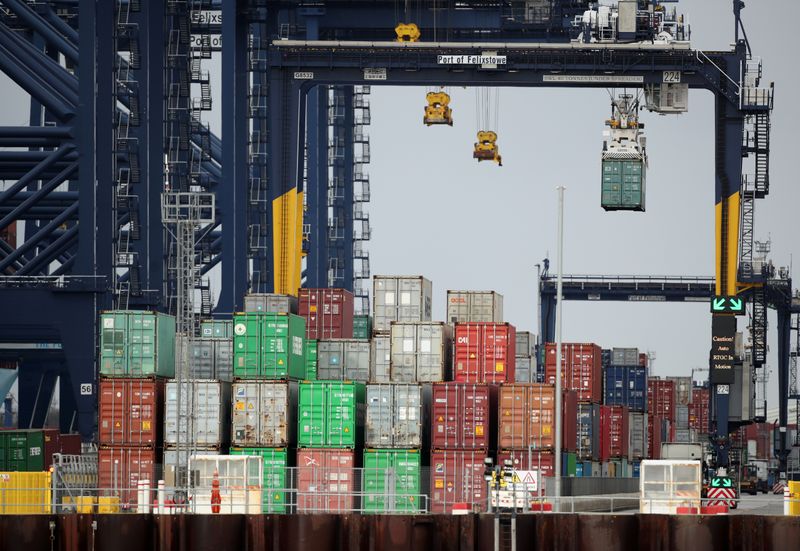BRIGHTON, England (Reuters) – The opposition Labour Party would make rebuilding Britain’s ties with the European Union its top trade priority, putting the bloc above U.S and Indo-Pacific deals in the post-Brexit era, its trade policy chief Emily Thornberry said on Monday,
Conservative Prime Minister Boris Johnson is only two years into a possible five-year term, but Labour is using its annual conference in southern England to bill itself as a credible alternative government with Britain beset by fuel shortages, empty shelves and soaring energy prices.
The government has made a push into the Indo-Pacific its trading priority, eyeing premium exports to its rapidly expanding middle classes and a surge in demand for British professional services.
But Thornberry told Reuters she would instead focus on fixing trade partnerships closer to home which have been hit by increased bureaucracy and a deterioration in diplomatic relations caused by the rancorous EU exit negotiations.
“The reality is that it’s always easier to trade with those who are geographically near, that’s how it works,” Thornberry said.
She described the free trade agreement signed with the EU on Christmas Eve 2020 as “thin” and “desperate”, but said there was scope to build on it and restore a better functioning arrangement with Britain’s largest export market.
Since leaving the EU, British exporters in some sectors have either been priced out of EU markets or cut off entirely by the demands of new customs rules.
Thornberry’s first step would be to strike an agreement with the EU to resolve problems with the transportation of food between Britain and the EU, and Britain and Northern Ireland.
The government has said it wants to find solutions, but will not tie its food standard permanently to EU law.
A veterinary deal could help rebuild trust with Brussels and open the door to mini agreements on a range of other difficult issues that were delayed or left unresolved by the 2020 deal, Thornberry said.
“Build on what’s there, repair the holes, be pragmatic, be realistic, be grown up politicians and not dogmatic,” Thornberry said.
(Reporting by William James; Editing by Angus MacSwan)





















